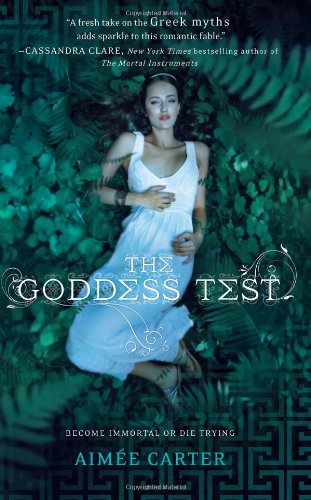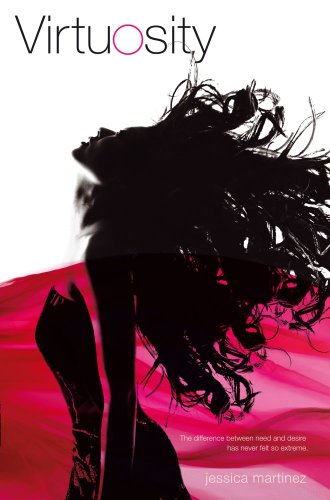Young adult authors can't stop with just one. It seems like every successful book out there nowadays is followed up with a sequel, then often more books after that. If there's not a straight sequel, then you often find companion novels (such as Stephanie Perkins'
Anna and the French Kiss and
Lola and the Boy Next Door or Leah Cypess'
Mistwood and
Nightspell). Stand-alone novels are becoming as rare as penguins in Florida.
Why So Many Series?
If you want to be cynical, and I often do, you can answer this question with one word:
Money. If a book is successful, subsequent books with the same characters probably will also be successful. Ka-Ching for publishers, authors, and booksellers.
Of course, most of the authors I've met do enjoy eating. And with the dominance of Amazon and the rise of e-readers, it's harder and harder to earn enough off a book to put dinner on the table. Who can blame them for trying to make a living?
The temptation to write more than one book is motivated by more than money. Authors love their characters. It's hard to say goodbye after just one book. Plus, many authors are like me in that their intention to write three paragraph quickly turns into three pages. If they put their plot ideas into one book, it would be 2,000 pages. Better to break it up.
Series: Bad or Good?
A lot of bloggers note stand-alone books with admiration. They stand out due to their rarity. But being a series is not necessarily a bad thing.
On the Pro-Stand-Alone side, it is a talented author who can fully develop characters, build a world, and craft a plot from beginning to end in a single novel. Three or four hundred pages isn't that much to make readers fully understand the characters' world. Authors must be able to pack a lot of information into relatively few words.
Back to the "it doesn't really matter" side...As much respect as I have for a well-done stand-alone novel, for many story arcs it simply isn't practical. For example, could the Lord of the Rings be fully set out in one novel? Could Harry Potter? Could Twilight?
Pro-series: A series can be so much richer than a stand-alone novel. Assuming the plot and characters develop more with each novel, the reader becomes immersed in a world for a much longer period of time. Let's consider Maggie Stiefvater's
The Wolves of Mercy Falls series as an example. We got to know Sam, Grace, and the idea of the werewolves in
Shiver. Alone,
Shiver is a wonderful book. But it becomes so much more with
Linger and
Forever when Isabel and Cole become main characters and the idea of a cure for the werewolves becomes a possibility. Plus, the romance between Sam and Grace has time to be challenged and to grow stronger.
Too Much or Not Enough: The Challenge of Finding Just Right
So you're an author and you're going to write a series. Do you write two books...three...seven? The ideal number of books in a series is tricky. Write too few and you might as well snatch my slice of chocolate cake out from under me when I've only had one bite. Write too many and you've served more and more cake until I'm ready to throw up and swearing that I'll never eat cake again in my life.
I think three is the ideal number. At two books, the reader is just getting to know the world and the characters. You end the series just as I'm primed and ready for more. For example, I was particularly disappointed that
Once A Witch and
Always A Witch by Carolyn MacCullough was only two books. I loved the characters and wanted to hang out with them longer. On the other hand, more than three books risks over staying your welcome. Like a TV show after eight seasons. Every plot point has been done to death and there's nothing new to learn about the characters.
There are series that demand more than three books. Harry Potter could not logically have been concluded in less than seven novels since it followed Harry through each year of school. Another series that I love,
The Secrets of My Hollywood Life by Jen Calonita stretched out to six books. Six books weren't necessary for character development, but it did have multiple story lines that made each of the six novels unique and interesting.
On the negative side, I don't really think
Twilight needed to be four books.
Breaking Dawn definitely has a strong plot line and lots of character development - and unlike many people, I like the book. But I think the story-line could have been adjusted so that Bella became a vampire and she and Edward lived happily ever after by the end of
Eclipse, and readers would have been perfectly satisfied (or perhaps more satisfied given the controversy of
Breaking Dawn).
In another realm, are the sitcom books. Think the
Babysitter's Club or
Goosebump series. There can be hundreds of books. These series are the Seinfeld's of the book world. While there is some character development throughout the series, each book is mostly a stand-alone novel. The authors have every reason to keep writing these books as long as people will read them, even if they have to recycle storylines.
Types of Books
Paranormal Series and Stand-Alone
Series are most prevalent with paranormal novels. I can hardly think of a single paranormal romance novel that doesn't have at least two books in the series. Most have three or more. The only stand-alone book that comes to mind is
Sunshine by Robin McKinley. Can you think of others?
Stand-Alone: Sunshine by Robin McKinley
Series: Twilight by Stephenie Meyer; Vampire Academy by Richelle Mead; Wolves of Mercy Falls by Maggie Stiefvater; Caster Chronicles by Kami Garcia and Margaret Stohl; The Mortal Instrument series by Cassandra Clare; The Iron Fey series by Julie Kagawa; The Wings series by Aprilynne Pike
Fantasy Series and Stand-Alone
Fantasy also commonly has multiple books. The reason behind this is the same as paranormal - usually the author has created a detailed world and an evolving storyline and characters. One book won't do the plot justice.
Stand-Alone: The Near Witch by Victoria Schwab; Princess Academy by Shannon Hale; Ella Enchanted by Gail Carson Levine; Coraline by Neil Gaiman; Finnikin of the Rock by Melina Marchetta
Companion Books: Mistwood & Nightspell by Leah Cypess
Series: Song of the Lioness series by Tamora Pierce; Chronicles of Narnia by C.S. Lewis; Lord of the Rings by J.R.R. Tolkien; Harry Potter by J.K. Rowling
Contemporary Series and Stand-Alone
Contemporary is where you most commonly find stand-alone novels. This is understandable. We all know the world that a modern 16-year-old girl (or whatever he or she may be) lives in. We need to be introduced to her family, her friends, and all the various challenges she faces...but it doesn't take a map and a list of characters to familiarize ourselves with the world. Similarly, the plots typically aren't complex enough to require multiple books. When there is more than one book, it's often another episode in that character's life, rather than a continuation of an ongoing plot.
Stand-Alone: Sarah Dessen's books; Like Mandarin by Kirsten Hubbard; Elizabeth Eulberg's books; Epic Fail by Claire LeZebnik; Justina Chen Headley's books; Jellicoe Road by Melina Marchetta
Companion Books: Anna and the French Kiss & Lola and the Boy Next Door by Stephanie Perkins; If I Stay & Where She Went by Gayle Forman; Perfect Chemistry books by Simone Elkeles
Series: Dairy Queen books by Catherine Gilbert Murdock; President's Daughter books by Ellen Emerson White; Secrets of My Hollywood Life by Jen Calonita; The Daughters series by Joanna Philbin; The Mother Daughter Book Club series by Heather Vogel Frederick
Historical Fiction Series and Stand-Alone
Historical fiction also usually has stand-alone novels. The reason is similar to contemporary, although I think that multiple books might be required to adequately establish a historical setting. And many significant events in history have plot lines that need multiple books. But typically the books come one at a time, unless there is a paranormal element to the novel (think Libba Bray or Michelle Zink). Perhaps money is the reason that there aren't more historical series. Historical fiction doesn't usually sell as well as other genres.
Stand-Alone: Between Shades of Gray by Ruta Sepetys; Number the Stars by Lois Lowry; The Book Thief by Markus Zusak; Eva Ibbotson's books; Ann Rinaldi's books
Companion Books: The Upstairs Room & The Journey Back by Johanna Reiss
Series: The Royal Diaries series; The Dear America Series; The Luxe series by Anna Godbersen; The Bloody Jack series by L.A. Meyer
Do you prefer stand-alone novels or series? What are some of your favorite stand-alone books? What are some of your favorite series? Feel free to supplement my list






























